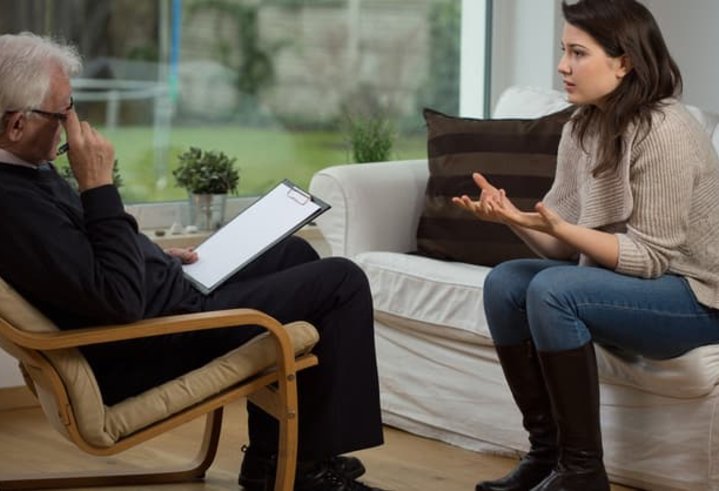What is counselling?

Developing effective counselling skills may be beneficial for a range of professions and careers. They not only help to build trust and establish rapport but they also promote active listening to ensure that people feel heard and understood.
SkillsTalk outline core techniques that help support counsellors and other therapy and communications based professions.
What are the basic counselling skills?
- Attending.
- Use of silence.
- Reflecting and paraphrasing.
- Clarifying and the use of questions.
- Focusing.
- Building rapport.
- Summarising.
They are: attending, use of silence, reflecting and paraphrasing, clarifying and the use of questions, focusing, building rapport and summarising.
Let's take a more in depth look at each pillar and how to successfully apply them in a practical sense.
1. Attending.
Attending is the first of the counselling micro skills that a trainee counsellor learns, which forms the basis of all other counselling skills.
When referring to attending in the practice of counselling, it encompasses the following techniques:
- Eye contact: By focusing on an individual client, eye contact shows that a counsellor is engaged with what is being communicated and that a patient has their undivided attention. However, rather than staring intently, it is important to keep eye contact organic and natural.
- Body language and gestures: As a counsellor, ensuring that your body language remains open and approachable is important when building a relationship with clients. Sitting with crossed arms or shifting restlessly can give the impression of disinterest or impatience. Embracing a relaxed posture and sitting slightly forward when a client is speaking shows that you are actively listening to what they are saying during your session.
- Facial expressions: In counselling, your facial expressions will speak volumes as you listen to your clients talk. A furrowed brow or pursing of lips can communicate judgement or revulsion as a response to the information being shared during a counselling session. An understanding smile at appropriate times can go a long way in creating a warm, welcoming and supportive environment for a client and further help to build a trusting relationship.
- Tone of voice: Sometimes it is not what a counsellor says but rather how they say it which may impact the level of comfort a client feels during a counselling or psychotherapy session. When a counsellor responds with questions to clarify a client's thoughts or to get a better understanding of what they are feeling, it's important to be thoughtful and clear in the words used to avoid confusion or miscommunication.
2. Use of silence.
Silence can be particularly powerful in the counselling space. By encouraging a patient or client to control the dialogue and determine the pace, flow of feelings and direction of thoughts it can assist in building a trusting, supportive relationship. Using silence as a counselling skill is also important for the counsellor; as well as providing validation to patients or clients, silence provides an opportunity for counsellors to thoughtfully consider what has been communicated and how to respond in the most considered and constructive way possible.
3. Reflecting and paraphrasing.

Successfully mastering reflecting and paraphrasing techniques is one of the most important microskills in counselling. The ability to repeat and feed a shorter version of a client's story back to them illustrates understanding and that a counsellor has actively listened to the information delivered throughout a session.
4. Clarifying and the use of questions.
When referred to in terms of counselling, clarification and the considered use of questions are considered basic counselling skills. Using open-ended questions may help professional counsellors build a greater level of trust with clients and also further their professional relationship throughout the course of the counselling journey.
5. Focusing.
When working with clients in the counselling and psychotherapy space, it is important to utilise focusing techniques to help establish the core issues of concern and ensure discussions are brought back to the pertinent challenges a client is wanting to work through.
6. Building rapport.
Creating a connection and developing a trusting relationship with a client is one of the most important and valuable skills in the counselling journey. When a client feels comfortable and safe within the counselling or psychotherapy session space, it may make it easier for them to open up to their counsellor.
7. Summarising.
Professional counsellors use summarising skills to condense information in response to what a client is saying and to validate what they are feeling. Essentially, summarising can be interpreted as extended paraphrasing.
What makes a good counsellor?

A good counsellor readily exhibits skills and traits like flexibility, empathy, advocacy and patience; they also have the ability to actively listen and build a genuine, trusting rapport with their clients. When considering the counselling or psychotherapy process, it is valuable to remember that a client is a human, first and foremost; they want to feel listened to and understood and that what they have to say is deemed worthy by their counsellor.
Why are counselling skills important?
Good counselling skills are not only valuable in a professional sense, but are useful when applied to day to day relationships as well. They may help to create more meaningful, empathetic interactions with colleagues, friends and family as well as clients in a psychotherapy environment.
How can I improve my counselling skills?
- Study a relevant course.
- Improve your communication skills.
- Take care of your mental wellbeing.
1. Study a relevant course.
Studying a relevant course can be a great way to boost your skills in counselling. If you're someone that prefers to study online, Upskilled's CHC51015 - Diploma of Counselling is a course that's delivered online, however, it's not without its practical components. In this course, you'll undertake simulated sessions as a trainee counsellor, exploring different scenarios with clients.
2. Improve your communication skills.
When it comes the counselling profession, you'll need to be a clear communicator so you can easily build rapport with your clients. Some of your clients may have ongoing mental health issues that need to be addressed in an empathetic manner, so being in-tune with your emotions and knowing how to deliver information sensitive to the needs of your clients is key.
3. Take care of your wellbeing.
Generally, counsellors find ways to help clients manage their mental health issues, and this can take an emotional toll. While counselling is a rewarding profession, it's important to look after your overall wellbeing to ensure that you don't experience burnout. Ensure that you regularly take time off or undertake activities that help you unwind and de-stress.
What careers could benefit from counselling skills?
Counselling skills will benefit individuals in a range of careers including:
-
Human Resources
-
Nursing
-
Teaching
-
Team Leader/Manager
-
Sports Coaching
If you are interested in building your counselling skills or working towards a qualification to apply professionally, Upskilled's CHC51015 - Diploma of Counselling is a suitable course if you're looking to develop core skills that can help you pursue a career as a professional counsellor. Alternatively, we also offer a Short Course in Counselling, which can provide you with a basic overview of the field.
Editor's note: This article was originally published in July 2020. Content has been revamped and updated for accuracy and comprehensiveness.


)
)

